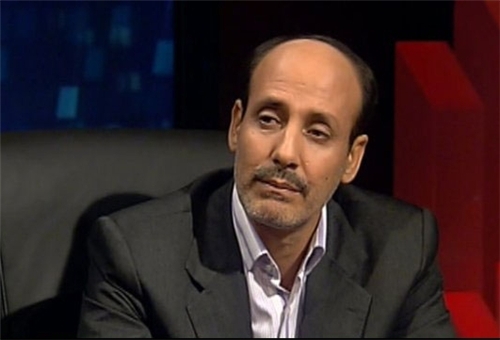 TEHRAN (FNA)- Iran is resolved to continue the talks with the G5+1 (the five permanent UN Security Council members plus Germany) over its civilian nuclear activities.
TEHRAN (FNA)- Iran is resolved to continue the talks with the G5+1 (the five permanent UN Security Council members plus Germany) over its civilian nuclear activities.Member of the Iranian Parliament's National Security and Foreign Policy Commission Nozar Shafiei underlined that Israeli Prime Minister Benjamin Netanyahu's remarks at the UN General Assembly cannot affect Tehran�s future talks with the six major world powers, since the roadmap for negotiations has been previously determined.
On Wednesday, Iranian Foreign Minister Mohammad Javad Zarif condemned Netanyahu's anti-Iran remarks at the 68th UN General Assembly meeting in New York, and said Tehran will not allow Israel to meddle with Iran-West nuclear talks.
Netanyahu and other warmongers were to ruin the chance of reaching an understanding, Zarif told reporters on the last day of his stay in New York.
Iran would not let them reach their goal and meddle in the process of nuclear talks between Tehran and the world powers, he said.
The foreign ministers of Iran and the six world powers held a meeting in New York last Thursday, and announced that they were pleased with their discussions over the settlement of the Iran-West nuclear standoff and that they have set a new round of negotiations for next month in Geneva.
The top diplomats of the G5+1 described their meeting with Zarif on the sidelines of the UN General Assembly as "a change in tone".
European Union foreign policy chief Catherine Ashton, who chaired the meeting, told reporters it had been "a substantial meeting. Good atmosphere. Energetic."
She said the two sides had agreed on an "ambitious timetable" to address western concerns about Iran's nuclear program and would meet again in Geneva on October 15-16 "to pursue the agenda to carry on from today's meeting and to hopefully move this process forward."
Ashton also added a note of caution, saying it was important to focus on "effective work that we do on the ground."
After a group meeting and then a one-on-one session between Zarif and US Secretary of State John Kerry, the US top diplomat called the talks "constructive", and said he was struck by a "very different tone" from Iran, the USA Today reported. "We've agreed to try to continue a process that would try to make concrete and find a way to answer the questions that people have about Iran's nuclear program," Kerry said. "Needless to say, one meeting and a change in tone, that was welcome, does not answer those questions."
"All of us were pleased that the foreign minister came today and that he did put some possibilities on the table,'' Kerry said.
The meeting between Zarif and Kerry, who sat next to each other at a U-shaped table, was the highest-level direct contact between Iran and the United States in years and, in terms of substantive discussions, the first in a generation.
Iran and the United States have been at odds since Iran's 1979 Islamic Revolution toppled the US-backed shah. The last time a US secretary of state met with Iran's foreign minister was in May 2007, when Condoleezza Rice made clear she was open to talking to her Iranian counterpart, Manouchehr Mottaki, at an international conference in Egypt, but the encounter amounted largely to pleasantries over ice cream, Reuters reported.
Ashton said Kerry and Zarif shook hands and were cordial.
Speaking after Kerry, Zarif said the meetings had been "very constructive" and "very businesslike."
"We hope to be able to make progress to solve this issue in a timely fashion (and) to make sure (there is) no concern that Iran's program is anything but peaceful," he said.
"I am satisfied with this first step," Zarif said. "Now we have to see whether we can match our positive words with serious deeds so we can move forward."
He said the result would have to include "a total lifting" of the international sanctions imposed on Iran.
British Foreign Secretary William Hague said there had been a "big improvement in the tone and spirit" from Iran.
German Foreign Minister Guido Westerwelle said the meeting had taken place in a "completely different tone, atmosphere and spirit" than the group was used to and that a "window of opportunity has opened" for a peaceful resolution of the situation.
He further called for action, and said "it is now important that we have substantial and serious negotiations very soon".
Rouhani's pronouncements at the UN have raised hopes that progress could be possible, but they have also served as a reminder that the path to that progress will not be quick or easy.
In his speech to world leaders at the UN last Tuesday, he repeated Iran's long-standing demand that any nuclear agreement must recognize the country's right under international treaties to continue enriching uranium, and underlined the need for a win-win game.
By Fars News Agency
The Iran Project is not responsible for the content of quoted articles.











